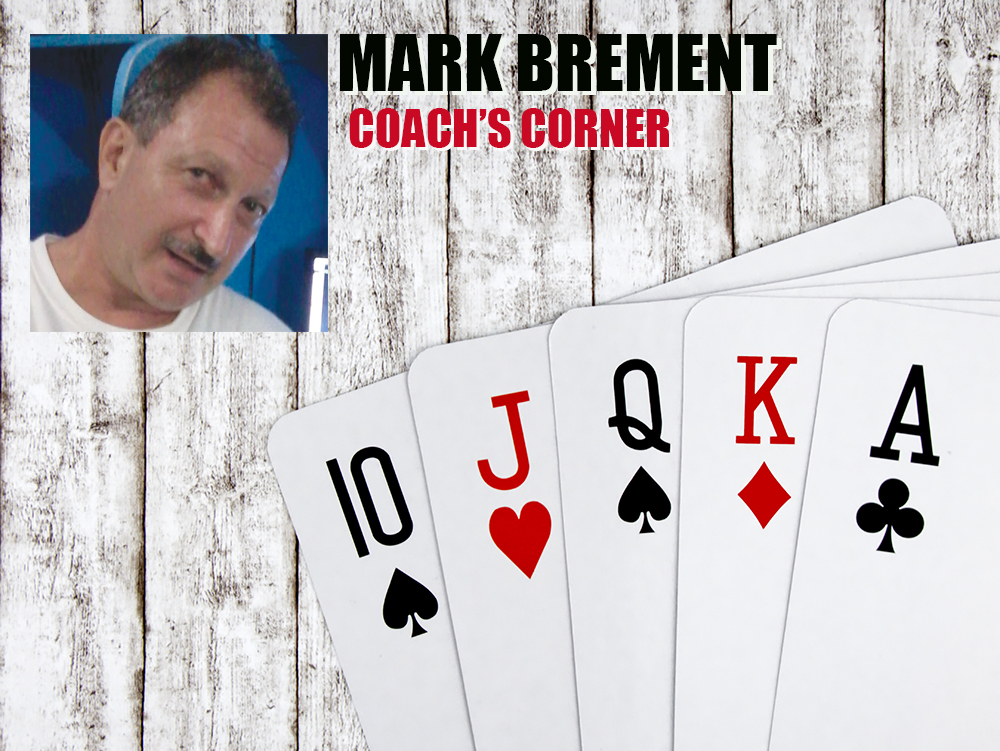I led a poker group for a little more than five years. We used to go around the table and share the results for our weekly play and, back then, we had accurate statistics because we were all playing online.
The poker tracking software was a great tool for all involved because we could really dig in to the data; it was enlightening to see who had the best numbers.
For example, who earned the most on the button, or who lost too much money from the blinds. Or who had the best ITM (in the money) percentages in SNGs. Having a weekly meeting with eight players is absolutely a great tool to use to improve your game.
Recently, one of my students sent me a hand and the message was: “I wanted to share this hand because lately all you have been getting from me is the beats.”
This jogged my memory: We had a $5 bad-beat story charge at my weekly event. I had a coffee can on the conference table and was delighted to earn a few extra bucks.
In poker, there are no bad beats, just simply recurring situations that even out over time.
Does this make sense to you? I insisted that every player at our poker group start their weekly review by saying emphatically, “I am a lucky player; a powerful winning force surrounds me,” and, yes, I borrowed that from Caro’s Fundamental Secrets of Winning Poker.
A positive mental attitude is critical to long-term positive-poker results. Poker is simply too tough to beat without one. I can tell right away by the tone of a shared hand if my student is grounded in reality. Negative poker conveyance equals negative EV.
Every poker hand has a story and sharing hands with students is part of the process in plugging leaks.
Because the hand in question has a negative ending, this does not mean that the player who’s sharing a losing hand is being negative. Sometimes we want to explore if our bet-sizing was proper, or other variables.
We must understand the result of the hand isn’t relevant. The devil is in the details. Players who plan their hands know in advance what their next move is going to be.
If a player has that deer-in-the-headlights look, it’s because he’s taken by surprise. We must know what our action is going to be well before it’s our turn to act.
If you’re losing at a higher rate than you should be, you likely are playing too many hands out of position.
— Mark Brement has spent 15 years teaching and coaching all facets of poker, including at Pima CC. Email him at brementmark@gmail.com.



